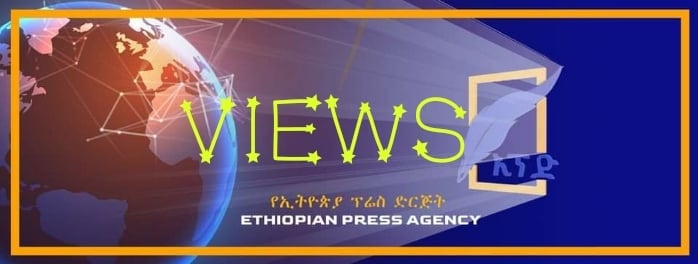
While the US and other Western countries often preach about human rights to developing countries, including China, they have their own notorious human rights records. For example, the finding of several hundreds of remains of indigenous children in Canada in unmarked graves has shocked the world. Without repenting for their own acts of genocide, why does the US and some Western countries insist in using human rights topics to attack China? What could China and other developing countries do to cope with the situation? The Global Times (GT) interviewed Zhang Dan (Zhang), vice president and director-general of the UN Association of China on these issues. GT: You host an online event themed on discrimination against Asians in the US on the sidelines of the ongoing 47th session of the UN Human Rights Council. In the eyes of some Western people, it is just for the US and the West to accuse China on human rights topics. But it is “propaganda” for China to point out that the US and West have major problems with their own human rights records. They even call it “whataboutist” attack. How do you think about this?
Zhang: The West always thinks they have the moral high ground on human rights. They control the discourse power to define what human rights are and how to interpret it – this is actually a kind of hegemony on human rights issues. The West thinks non-Western countries have no qualification to expound their own views on human rights. Take the right to development as an example. All developing countries, including China, cherish this right, since
without it, talks of protecting other human rights would be like building a castle in the air. Without it, there will be no guarantee for other human rights such as education and health. The Declaration on the Right to Development was passed in the United Nations years ago, but why hasn’t it become a convention? The Western countries oppose it since they do not view the right to development as being the same as human rights. The West is hypocritical on human rights issues. The human rights they are talking about are not human rights for all. The US claimed that human rights are the very foundation for the founding of the country. But when it was founded, females and blacks had no rights to vote. Native Americans died from genocide. The US human rights record shows that its human rights are only about protecting the white people’s interests. Until today, the human rights for ethnic minorities have not been fully protected. Discrimination toward Asians and Blacks has fully exposed its problem.
Recently, there has been rolling coverage on indigenous children’s remains been discovered in Canada. In the 1990s, I listened to indigenous people from the US, Canada and Australia describing the atrocities against them in these countries at the UN meetings. They accused these countries of forcedly separating their children from parents, putting them in boarding schools to segregate them from their culture, civilization and language. They physically abused them too. Western countries’ human rights are not the rights for all. The most terrible mistake the West has ever made on human rights is perhaps this: viewing the Western model of democracy and their political system as a universal pattern for the globe. Some values of human rights are universal and shared, but the models of practicing human rights are not. UN has adopted many resolutions to admit the diversity and different forms of democracies.In his speech to commemorate the centennial of the Communist Party of China on July 1, Chinese President Xi Jinping remarked, “We will not, however, accept sanctimonious preaching from those who feel they have the right to lecture us.” The West wants to control the human rights discourse and use it as political weapons toward others. For the past years, they have been doing so and now they are ramping up efforts by sensationalizing human rights in order to demonize China. Human rights have become a cheap tool for the West to make lies. For example, they fabricate stories, spread rumors, hire Pseudo-scholars, and financially support anti-China think tanks to make false reports to discredit China. These are dirty tricks.
When China points out their human rights problems, the Western countries accuse China of making “propaganda.” The fact is they are the ones who are doing so. They are launching a propaganda offensive against China with lies and smears to mislead the international community. GT: As you mentioned, the West has poor human rights records. Do you have any suggestions for China and other countries to better use the UN Human Rights Council as a platform to expose the US human rights problems?
Zhang: On many multilateral occasions, we have seen that more and more developing countries have seen through the hypocrisy of the so-called Western human rights accusations. They have realized that human rights have become a political maneuver by Western countries. The US, Canada, Australia and New Zealand were the only four countries opposed to the adoption of United Nations Declaration on the Rights of Indigenous Peoples. Why? Just take a look at their vile history and it’s self-explanatory.
The US has not ratified several fundamental human rights conventions, including the Convention on the Elimination of All Forms of Discrimination Against Women, the Convention on the Rights of the Child, and the Convention on the Rights of Persons with Disabilities. The US talks a lot about the protection and promotion of human rights, but why are the most basic human rights conventions not ratified by them? During the review meetings of these conventions, many countries have criticized US’ human rights issues, as well as the racism in the country. The United Nations special rapporteur on human rights also criticized the US’ human rights issues. Therefore, when it comes to human rights issues, we should break the Western control of the discourse power on human rights. We should not be led by the nose by them. We need to expose their lies on more multilateral platforms and present these facts to the world.
Source: Global Times
Editor’s Note: The views entertained in this article do not necessarily reflect the stance of The Ethiopian Herald
The Ethiopian Herald 23 July 2021




